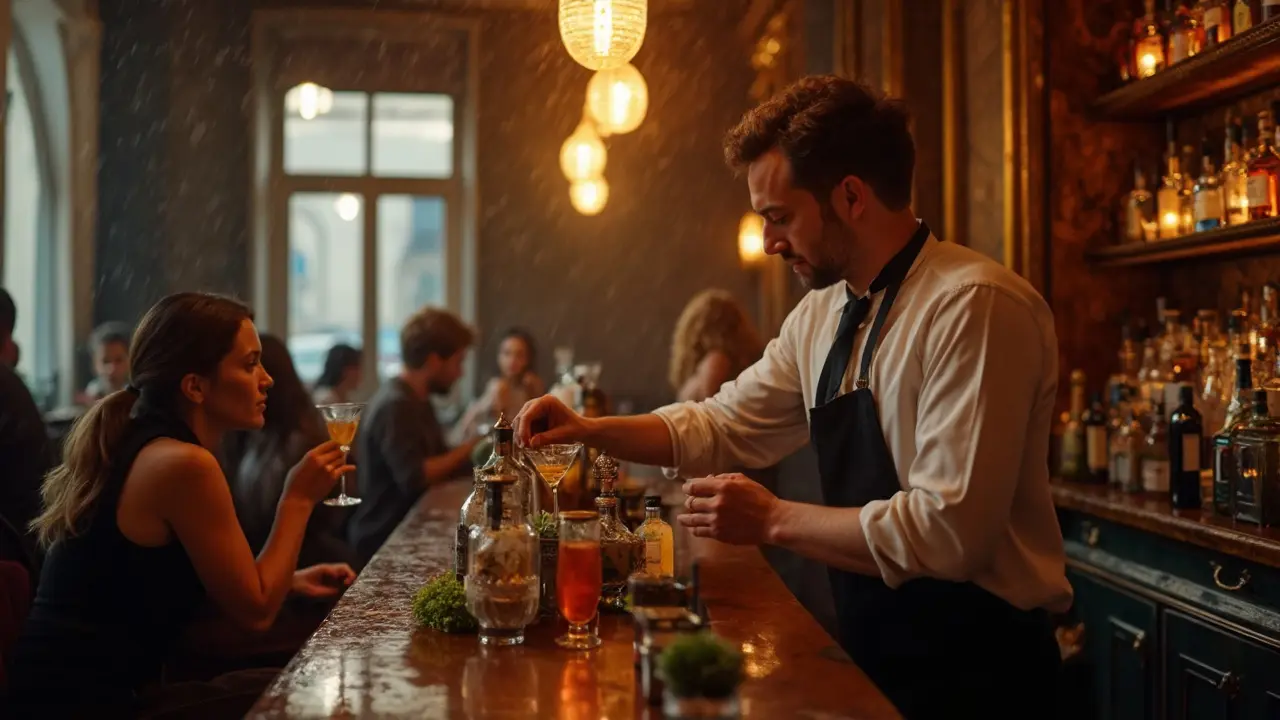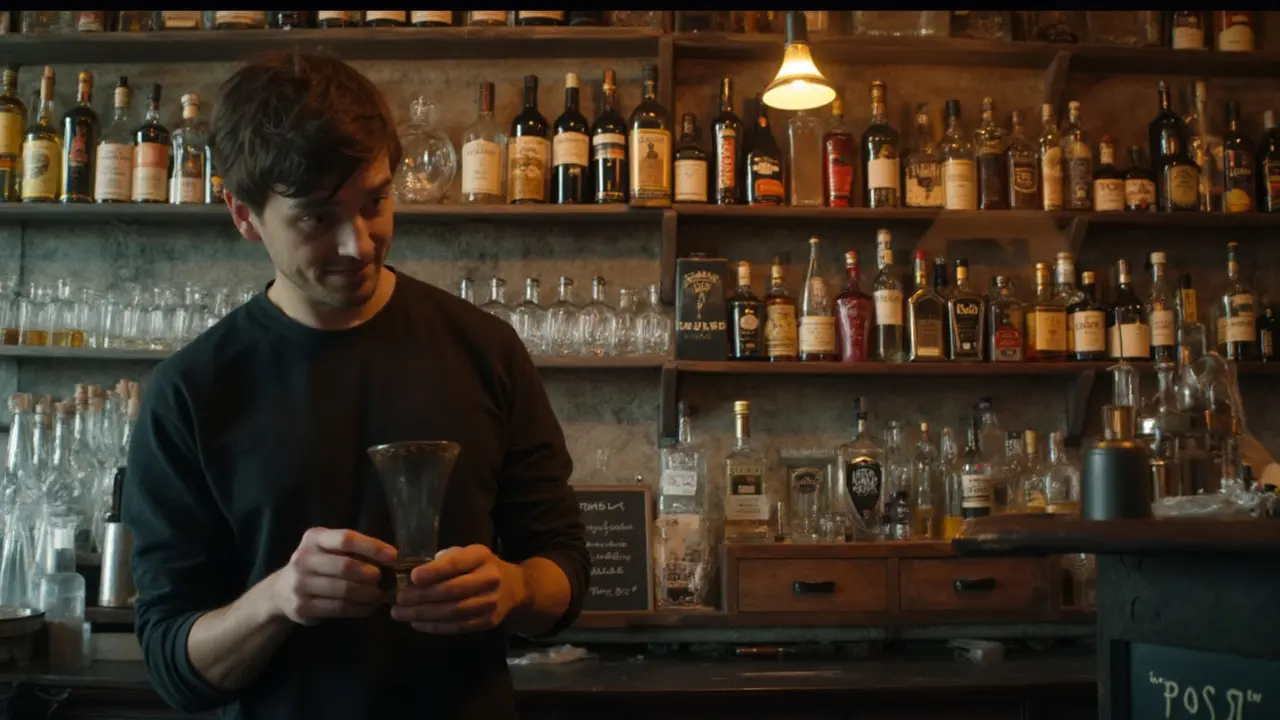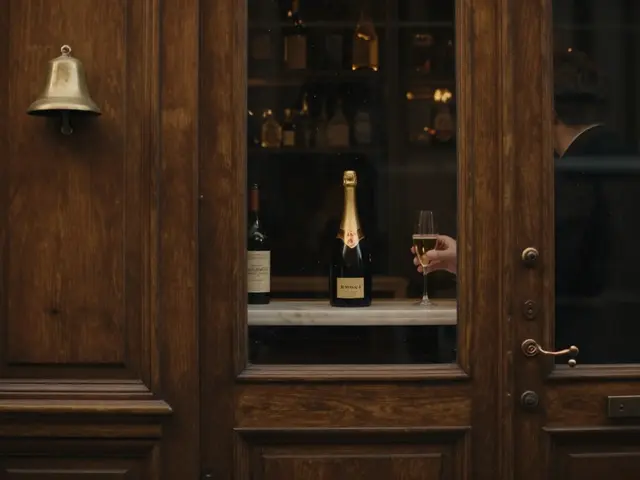
The reality of owning a cocktail lounge in Paris is a lot less glamorous than Instagram suggests. Sure, there’s the mood lighting and the clinking of ice in shiny glasses, but the real work starts long before anyone pulls up a stool at the bar. Every morning, I run a full check on the stock: Did we run out of Chartreuse? Did last night’s bartender finish the house syrup? In this city, you can’t just wing it. Parisians notice.
One thing about running a bar here: locals expect quality. Whether you’re serving a classic Boulevardier or mixing up your own twist on a Negroni, people want to know your ingredients are top notch. If your oranges don’t come straight from Marché d'Aligre or your vermouth isn’t spot-on, regulars will let you know—either quietly, with a shrug, or more loudly, with a pointed comment. That’s Paris for you.
Every small detail matters. Keeping the glasses spotless, the mixers chilled, and the playlist on point are not just extras—they’re survival essentials in this neighborhood. If you fail at any of them, you’re just another bar trying to make it on Rue Oberkampf or tucked away behind Bastille. No one comes back for average.
- Morning Rituals and Prep
- Sourcing Ingredients in Paris
- Designing a Standout Cocktail Menu
- The Evening Rush: Meeting Parisian Expectations
- Behind-the-Scenes Challenges
- Tips for Standing Out in Paris Nightlife
Morning Rituals and Prep
Running a Paris cocktail lounge means mornings aren’t for sleeping in—they’re for getting a jumpstart before the city wakes up. Everything starts with a walk-through: you spot sticky counters or trouble spots under low light that last night’s crew might’ve missed. Even in a place with automatic dishwashers, glassware always gets a second check. You don’t want a lipstick stain showing up during service.
Stock checks are non-negotiable. We don’t rely on guesswork here, especially with stuff like Lillet, Cognac, or that pricey bottle of absinthe everyone asks about but rarely orders. Being in Paris, your supplier list gets hyper-local: for lemons and herbs, Marché des Enfants Rouges is a favorite, and for those specialty bottles, La Maison du Whisky near Madeleine is a game-changer.
- Check syrups and homemade infusions (agrumes and basil go fastest)
- Inspect ice machines and prep extra blocks—no one wants warm cocktails
- Cut fruit before lunch rush—Paris health inspectors don’t play around
- Update the delivery list for bread and charcuterie boards if you serve snacks
- Quick team huddle to review last night’s feedback and today’s expected reservations
Paris crowds want more than just the basics. Around half of regulars order caïpirinhas or espresso martinis, not the classics you might expect. Surprising, but true: according to a 2024 nightlife survey by Bar Parisien magazine, 48% of patrons prefer inventive mixes to the old standards.
| Task | Average Time (minutes) |
|---|---|
| Stock-taking | 20 |
| Glassware cleaning | 15 |
| Fruit/ingredient prep | 25 |
| Team meeting | 10 |
| Room & bar cleaning | 30 |
Don’t underestimate the prep. Getting everything ready feels repetitive, but one slip-up—like running out of ice or missing mint leaves—ruins a night and, in this city, word travels fast.
Sourcing Ingredients in Paris
Getting the best stuff for your Paris cocktail lounge is half the battle. Parisians have high standards for freshness, quality, and authenticity, so you can’t cut corners here. Forget about one-stop shopping at some big box store—most serious bar owners hit up a bunch of different spots every week.
Top local markets like Marché d’Aligre, Marché des Enfants Rouges, and Marché Bastille are your go-to for fresh fruit, herbs, and garnishes. These places open early, so if you want first pick, you have to be there before the crowds. And don’t expect flawless lemons in winter; French markets are all about what’s in season right now. You’ll get better flavor and it’ll show in your drinks, too.
For spirits, you’re spoiled for choice. La Maison du Whisky in the 8th arrondissement stocks rare bottles and French classics you won’t find in supermarkets. Or try Lavinia near Madeleine for everything from small-batch gin to aged armagnac. If you create signature cocktails, staff at these shops can actually help you brainstorm pairings or suggest niche bottles making waves in the Parisian scene.
Syrups and bitters aren’t all imported brands either. There’s a growing trend for homemade and local: you’ll see bars making their own or working with Paris-based artisans like Maison Guiot or Barman At Home.
- Fresh goods: Pick up citrus, berries, and basil early in the day at Marché d’Aligre.
- Spirits and liqueurs: La Maison du Whisky for whiskey, gin, and rare finds; Lavinia for French vermouths.
- Syrups and bitters: Maison Guiot for syrups, or small-batch producers for custom flavors.
Here’s what a typical weekly spend on core ingredients looks like for a mid-sized spot just outside Le Marais:
| Category | Supplier/Market | Weekly Spend (EUR) |
|---|---|---|
| Fresh Produce | Marché d’Aligre | 120 |
| Spirits | La Maison du Whisky | 350 |
| Syrups/Bitters | Maison Guiot | 60 |
| Other (ice, soda, etc.) | Metro/Fournisseurs locaux | 70 |
Consistency is key. Tracking down the right supplier means fewer headaches and more reliable flavors. If you get tight with local market sellers or bottle shop owners, they’ll tip you off when something special arrives. In Paris, these relationships are worth their weight in gold.
Designing a Standout Cocktail Menu
If you want your *Paris cocktail lounge* to actually draw a crowd, your menu has to do a lot more than list the usual Mojito and Gin Tonic. Parisians and expats alike come out looking for something fresh, local, and even a little daring. It’s not about stuffing your list with as many drinks as possible. It’s about picking the right mix so every guest finds something legit, but also personal to your bar’s vibe.
First big tip: use French ingredients and highlight them. French spirits like Suze, Calvados, and Chambord aren’t just trendy—people in Paris expect you to showcase what’s local. Source your fruits from Marché Bastille if you want bragging rights. And if you use French vermouth or aperitifs, say so on the menu. The regulars love that. At places like Danico or Le Syndicat, you’ll see this approach every season—the menus switch up to reflect what’s actually available at the markets.
When you’re designing your drinks, test each one with your bartenders. Invite your friends in (the honest ones) and see what they order twice. If nobody comes back for round two, drop it. Too many bars keep weird, barely-ordered cocktails on the list. Pare it down: eight to twelve well-tested drinks work better than a laundry list.
The descriptions need to be clear and tempting, but skip the overblown language. Instead of “symphony of botanicals,” say “house gin, thyme, cucumber, lemon.” Simple, direct, and useful for someone with limited French. Adding an icon or a quick tag for “low ABV” or “alcohol-free” helps, especially with more Parisians looking for lighter options these days.
- Feature one or two house specialties you can’t find anywhere else in Paris.
- Names matter here. Something playful in French can catch attention, but make sure the staff can pronounce everything naturally.
- Rotate a few cocktails each month. Use Instagram polls or feedback cards at the bar—locals want to feel involved.
- Pair a few drinks with easy-to-prepare bar snacks, like tartines or a French cheese plate. This isn’t just for the menu; it increases how long people stay and how much they order.
In short, your cocktail menu is your secret weapon. It’s the main thing that can put your spot ahead of the bar next door. If you want to win in the Paris nightlife scene, keep it short, fresh, and unmistakably local.

The Evening Rush: Meeting Parisian Expectations
When the sun goes down in Paris, the mood inside your bar must shift—fast. Parisians start dropping in from all directions: friends finishing work in La Défense, couples hunting for a quiet date night, even tourists chasing a genuine local scene. And here’s where things get real: service standards skyrocket the moment the first regular steps through the door.
If you don’t greet people within a minute or two, you’ll notice them glancing around, maybe even calling you over with a quick, “Excusez-moi.” Parisians respect good service but have little patience for delays. The bar has to keep a pace that matches the crowd—neither too pushy nor too slow. Most locals love to linger with their drinks, but if it takes forever to order, they’re out the door and onto the next place on Rue Saint-Sabin or rue de Charonne.
Drink-wise, the classics still have a stranglehold in Paris. Expect a steady line of Negronis, Spritz, and, of course, the ever-popular Boulevardier. But more and more, people ask for low-alcohol apéros or even alcohol-free cocktails—especially on weeknights. If you’re not ready for this, you lose out on a huge crowd. Paris cocktail lounge menus now often feature at least two or three non-alc options, no joke.
- Expect questions: People here want to know what gin you’re using, if the lemon juice is fresh, or if that honey syrup is made in-house. Don’t bluff your way through; regulars love to test you.
- Good staff is everything: A friendly and knowledgeable bartender will start remembering favorite orders fast, especially if you see the same faces every week. That’s a golden ticket for customer loyalty.
- Stay flexible: If a table suddenly balloons from two to ten, you’ll need to shift things around to keep everybody happy, and quick math skills to split bills (tip: everyone here pays separately, so get used to it).
Now, let’s talk noise. On a packed Friday, it can get loud enough to drown out the playlist. Locals are used to cozy, sometimes crowded spaces, but they expect a certain vibe—neither too wild nor dull. Music at the right level helps a lot. French pop classics, electro, or just smooth jazz—locals appreciate a mix, but make sure the volume doesn’t kill conversation.
| Paris Bar Fact | Typical Value |
|---|---|
| Average Cocktail Price | €12 - €16 |
| Peak Evening Hours | 19:00 - 23:30 |
| Locals to Tourists Ratio | 60% locals, 40% tourists (central city) |
| Popular Cocktail | Spritz, Negroni, Espresso Martini |
| Non-Alcoholic Orders | Around 1 in 5 drinks |
Want to match Parisian expectations? Stick with top-notch ingredients, offer real service, keep your menus versatile, and never underestimate the power of a decent greeting and a clean glass. It’s a balancing act—get it right, and people don’t just stay; they start calling your place their new “local.”
Behind-the-Scenes Challenges
No one tells you that running a Paris cocktail lounge means dealing with way more than mixing drinks. Most of the real work happens where guests never see.
First, there are the classic French admin battles. You need permits for nearly everything—noise, terrace, alcohol—plus regular surprise checks. Even if your paperwork is perfect, expect city inspectors to pop in. Any slip-ups, and you risk a fine or even a temporary shutdown.
Hiring is another tough nut. Paris is packed with talent, but it’s also super competitive. Good bartenders know their worth. They’ll expect fair pay, guaranteed days off, and a say in menu specials. High turnover is a headache, so it pays to treat your team well. Learning French is non-negotiable—locals prefer staff who speak the language and understand the culture.
Cost control is a daily juggling act. Rents in popular neighborhoods like Le Marais or Saint-Germain can eat up 20-25% of your revenue. Add in rising prices for good spirits and fresh produce—lemons have jumped over 30% in price since last year—and you’re constantly recalculating your margins.
| Challenge | Detail | Typical Impact |
|---|---|---|
| Permits and Inspections | City requires frequent checks for licenses and hygiene | Delays, fines, sudden shutdowns |
| Staffing | Finding/keeping experienced staff in a competitive city | High recruitment costs, inconsistent service |
| Cost Management | High rent and variable supply costs | Tight margins, price adjustments on menu |
| Logistics | Supplier deliveries in narrow Paris streets | Delays, out-of-stock risk |
Getting the best stock can be tricky, too. Paris streets are narrow, parking is a nightmare, and suppliers sometimes show up late—or not at all. You’ll make friends with neighbors fast, just begging for a spot to unload a case of gin. Forget to double-check your order forms, and you might run dry on Saturday night, the busiest time of the week.
And then there are noise complaints. Some arrondissements like the 2nd or 5th are strict—even a few guests chatting out front can bring police or the mairie. The simplest way to avoid it? Keep your terrace small, watch the clock, and have an extra pair of hands to shush the crowd at midnight.
Here’s the bottom line: you learn to juggle a dozen things at once. If you think the biggest challenge is just making a good cocktail, you’ve never really stood behind a Parisian bar.
Tips for Standing Out in Paris Nightlife
The Paris bar scene is wild. With cocktail lounges popping up all over Le Marais and Pigalle, you can’t survive by doing what everyone else is doing. If you’re trying to stand out, here’s what actually works in the Parisian market.
- Paris cocktail lounge menus should have at least one unique signature drink. Don’t just copy popular classics. Use local flavors—think basil from local rooftops or French apéritifs like Suze or Lillet. For example, a popular spot in the 11th arrondissement uses homemade fleur de sel caramel for their Old Fashioned—and people keep coming back for it.
- Be loud about what makes you different—whether it’s zero-waste cocktails (like what you see at Combat in Belleville), your playlist, or your glassware. Parisians are always looking for the next detail to talk about with friends.
- Nail your service. French regulars notice when the staff knows their stuff and treats everyone with respect. I've seen bars lose their “cool” rep the moment staff act standoffish or distracted. Consistent, friendly, and fast is the only way.
- Use local suppliers. Naming the cheesemaker from Ile-de-France who supplies your small plates, or sharing which Parisian roaster does your coffee, adds credibility. People love stories behind their drinks and snacks.
- Make online reservations super easy. Most folks in Paris check Instagram or LaFourchette before heading out. A quick booking link is a game-changer for tourists and locals both.
- Get involved in local events. Whether it's Paris Cocktail Week or a Sunday Broc’ at Les Puces, being seen and networking with other bars or distilleries helps you get noticed. Collaborations are big here—think a guest mixologist night featuring talent from another top Parisian bar.
No matter your style—moody speakeasy or neon-lit hangout—staying original, attentive, and tuned in to the local vibe is how you go from being just another bar to the place people talk about in Paris nightlife.








